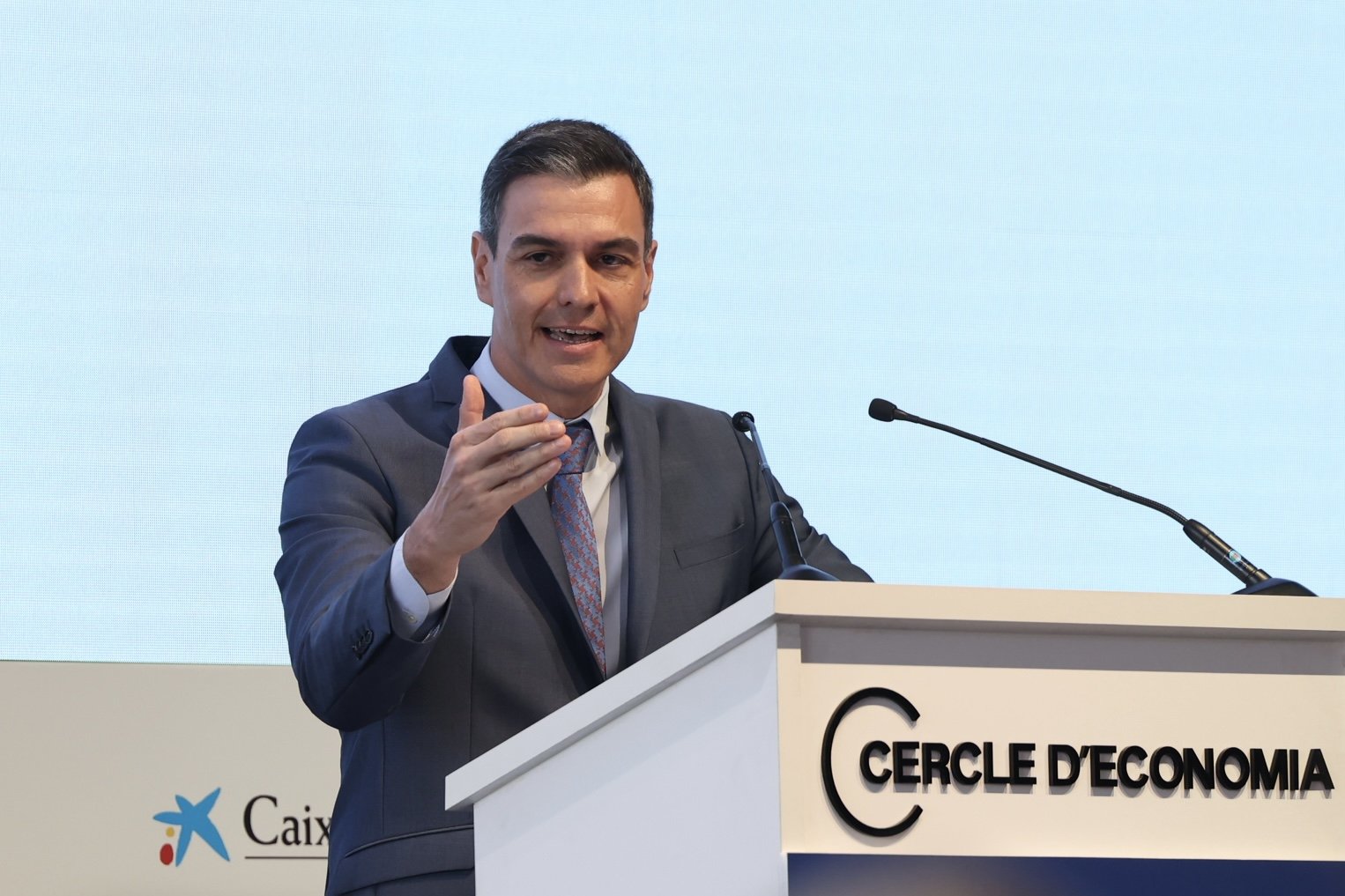The address by the Spanish prime minister, Pedro Sánchez, to the Cercle d'Economia's business conference in Barcelona just a day after the country's intelligence agency acknowledged that it had spied on the president of Catalonia, Pere Aragonès, and on people close professionally and personally to exiled president Carles Puigdemont, had generated great expectations among the audience. Aware of this, the PM began his speech by expressing what he described as a "declaration of principles": expressing his "profound respect for Catalonia". But it did not go any further. Aragonès had received him moments earlier at the gates of the business meeting with a serious attitude and warned him that the situation was "very grave". However, with the president of the European Commission, Ursula Von der Leyen, sitting in the front row, Sánchez chose to ignore the issue that is keeping relations with the Catalan government in the deep freeze.
The head of the Spanish executive limited himself to expressing his "respect and consideration" for Catalan society and its institutions as well as his "firm will to continue advancing in dialogue, negotiation and agreement." He referred to the issue with a generic phrase, commenting that "there is no nobler purpose for any political leader than building coexistence" so that citizens, at a time which is so special and complex, can live in a society without fractures. And that was all there was. Later, Spanish government sources explained that the two political leaders had agreed to arrange a meeting. But that will be another day.
Sánchez, who had greeted the Catalan leader with a "dear Pere Aragonès" and referred at all times to Von der Leyen as "dear Ursula", asserted the need for European patriotism and said that Europe is "a new and complementary identity" at the side of many others, such as those Spain and Catalonia. At the door of the Hotel W, where the event was being held, Sánchez had been met by a protest led by many of those directly affected by the espionage of the CNI intelligence agency.
Sanchez's self-satisfaction
In front of an eminently business-oriented audience, the PM devoted the heart of his speech to addressing the economic situation in Spain, amid the crisis caused first by Covid and now by the war in Ukraine. He began by asserting that the Spanish economy is responding solidly. He backed his claim by recalling macroeconomic data and celebrating the latest results on the labour market situation, with "more employment and higher quality jobs". In fact, he did not spare the praise for the labour reform passed by his executive.
He asserted that his government has a clear direction as well as the determination to address the measures that the country needs, despite being aware of the difficulties that "turbulence" causes in politics. He assured that "the turmoil will pass and what will last will be Europe", but also that Spain will have managed to overcome the scourge of employment precariousness for the first time, that the official minimum salary will be "respectable" and that thousands of previously abandoned families will now receive a minimum living income, that the elderly have decent pensions... "This and no other is our plan. To move forward, to overcome obstacles and to achieve a clear goal which is to provide the greatest number of people with a dignified life, with decent work and pay, and to push back only on intolerance and non-exemplary behaviour," he said. And his government has done this, he stressed, avoiding "sterile confrontation" and calling for "maximum unity."
Sánchez warned that it is everyone's task to preserve the positive elements that the economic situation requires, and he warned Von der Leyen that in this work, Europe is key. He recalled that the Spanish government had launched an ambitious recovery and resilience plan, based on digital transformation and ecological transition, as well as an economic plan to deal with the crisis.

